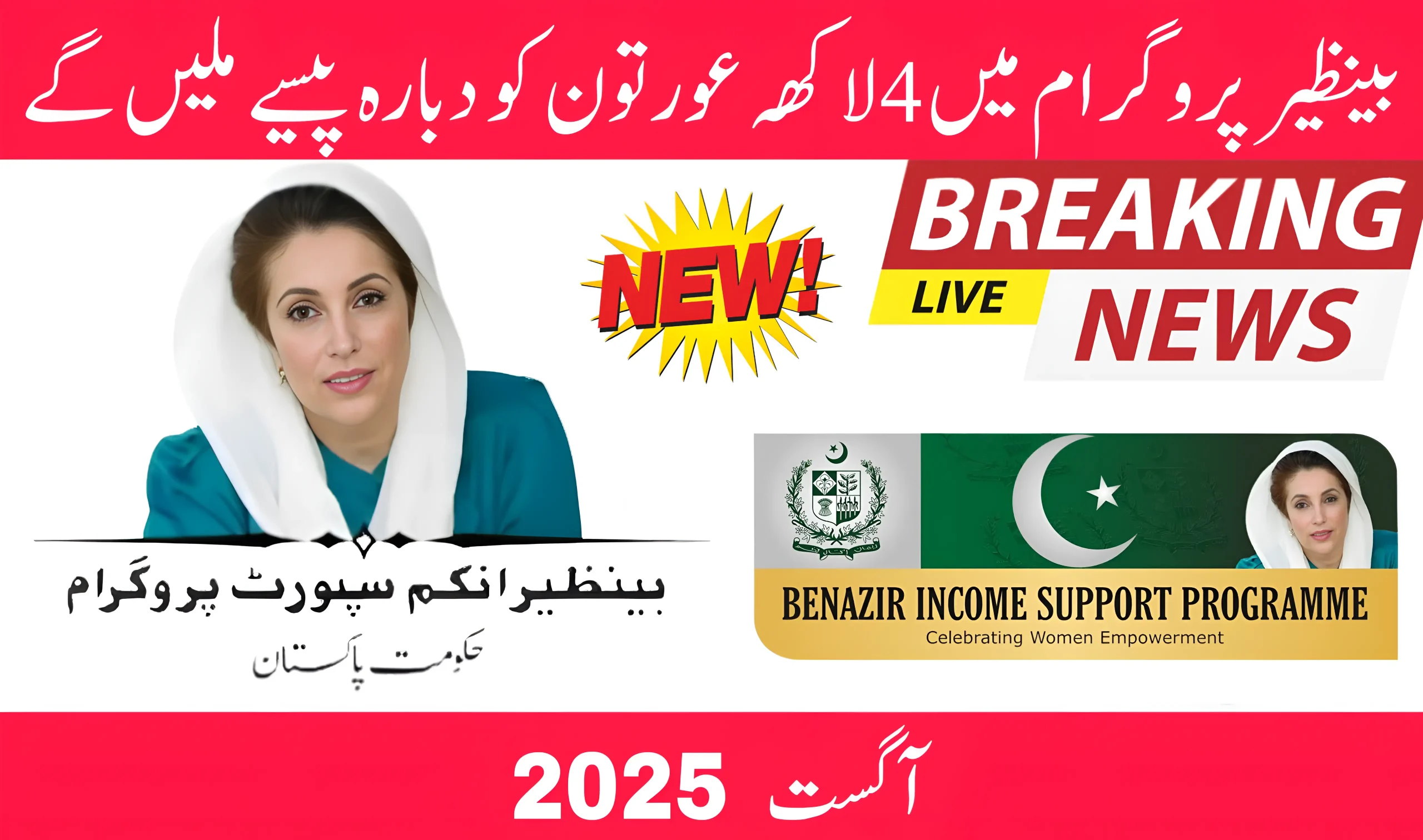400,000 Women Rejoin BISP for Rs. 13,500 Payment: A Step Toward Empowerment
In a significant move to bolster financial inclusion and poverty alleviation, the Benazir Income Support Programme (BISP) Check Your Status on 8171 Now in Pakistan has announced the re-inclusion of 400,000 Rejoin In BISP women into its financial assistance framework, starting August 2025. This development, part of the government’s broader commitment to supporting low-income households, ensures that these women will receive quarterly payments of Rs. 13,500, marking an increase from the previous Rs. 10,500. This initiative not only strengthens the social safety net but also underscores the program’s focus on empowering women and addressing economic challenges faced by vulnerable communities.
A Lifeline for Low-Income Families
Launched in 2008 under the vision of Shaheed Mohtarma Benazir Bhutto, BISP remains Pakistan’s largest social welfare initiative, designed to provide financial aid to the country’s most deserving families. With a mission to eradicate extreme poverty and promote women’s empowerment, the program has grown to support approximately 10 million families by the end of 2025, as announced by BISP Chairperson Senator Rubina Khalid. The re-inclusion of 400,000 women, many of whom were previously eligible but faced issues with payment delivery, reflects the government’s dedication to ensuring no deserving individual is left behind.
The increased quarterly stipend of Rs. 13,500, effective from January 2025, responds to the rising cost of living and inflation, enabling families to better meet essential needs such as food, healthcare, and education. For many women, particularly widows, divorced women, and those from rural areas with limited income sources, this financial aid serves as a critical lifeline. The program’s emphasis on direct cash transfers to female heads of households promotes financial independence and decision-making power, aligning with global Sustainable Development Goals (SDGs).
Streamlined Registration and Transparency
To facilitate the re-inclusion process, BISP has implemented a dynamic survey to update beneficiary data and ensure transparency in fund distribution. Eligible women, identified through the National Socio-Economic Registry (NSER), must meet specific criteria, including a household poverty score below 34%, a monthly income of less than Rs. 50,000, and no ownership of significant assets like land or vehicles. The registration process is straightforward: women are required to visit a BISP registration center with their Computerized National Identity Card (CNIC) and children’s B-Form, complete a dynamic survey, and verify their details through biometric authentication. Upon successful registration, beneficiaries receive confirmation via SMS from the 8171 service.
To enhance accessibility, BISP has introduced mobile registration vans for remote areas and partnered with banks like Habib Bank Limited (HBL) and Bank Alfalah to disburse payments through ATMs, retail clusters, and designated cash centers. This modernized payment system, including the upcoming BISP Digital Wallet System, ensures secure and efficient delivery of funds, minimizing delays and fraud. Beneficiaries are encouraged to check their payment status through the 8171 web portal or SMS service to stay informed about their eligibility and payment schedules.
Broader Impact and Future Goals
The re-inclusion of 400,000 women is just the beginning, with plans to expand the program to include 1 million new beneficiaries by January 2026. Alongside financial aid, BISP continues to invest in initiatives like the Benazir Hunar Mand Programme, which offers skill development opportunities to foster self-reliance and economic independence. These efforts complement the program’s core mission of poverty alleviation by equipping women with tools to contribute to their families’ long-term prosperity.
The increased stipend and expanded reach demonstrate the government’s proactive approach to addressing economic disparities, particularly for women in underserved communities. By prioritizing transparency, accessibility, and empowerment, BISP remains a cornerstone of Pakistan’s social protection framework, offering hope and stability to millions of families.
For those seeking to join or verify their status, visiting a nearby BISP center or contacting the helpline at 0800-26471 is recommended. With these updates, BISP continues to uphold its legacy as a beacon of support for Pakistan’s most vulnerable citizens.
